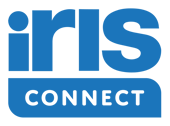Encouraging students to be independent learners, not only has huge benefits for them, but it's also a proven high impact, low cost way to improve progress.
The Education Endowment Foundation (EEF) found that self-regulated, independent learning has a high impact on pupils’ progress for a very low cost. They learnt that the average impact of self-regulation over 8 months’ progress was found to cost under £80 per pupil per year.
What is independent learning?
Put simply, independent learning is when pupils set goals, monitor and evaluate their own academic development, so they can manage their own motivation towards learning.
Why is independent learning important?
Students exploring for themselves is at the very core of learning. Making discoveries from a task the teacher sets that they are genuinely interested in and find challenging, and the feeling they gain from self-direction, is wonderfully rewarding for learners as well as an incredible life tool.
In the report, What is Independent Learning and What are the Benefits for Students? (2008), it was found that the benefits of independent learning for students include:
- Improved academic performance
- Increased motivation and confidence
- Increased chances to be creative and intellectually creative
- Fostered social inclusion and countered alienation from peers
- Increased opportunities for completing differentiated tasks, set by the teacher
9 tips for encouraging students to become independent learners
1. Provide students with opportunities to self-monitor
Self-monitoring depends on the two processes of establishing goals and receiving feedback from others and from oneself. You can encourage your students to self-monitor by helping them develop their use of self and peer assessment to see whether the strategies they were using were effective for achieving learning goals.
2. Use questioning as scaffolding to independent learning
The aim here is a gradual, step-by-step transfer of responsibility from the teacher to the student. The teacher must develop effective classroom discourse, asking higher order, open-ended questions, responding flexibly to students’ responses to promote thinking, problem-solving skills and deeper understanding.
Learn more about effective questioning in this article: How to improve your questioning skills
3. Offer models of behaviour
Encourage your students to model your behaviour. For example, by showing them how categorising information can make it easier to remember.
4. Develop communication that includes language focused on learning
This helps students to become more aware of the steps involved in learning, to understand their own individual learning style and helps them share their thinking.
5. Provide written and/or oral feedback on classwork and homework
This can be a good way to improve students’ confidence in working independently. Limit use of attainment grades and scores and consider giving grades for level of effort.
6. Encourage collaboration
Give your students regular opportunities to complete quality, small group tasks and encourage them to learn from each other and develop their own ideas, rather than always looking to you for answers.
7. Give pupils choices and encourage your students to set their own learning goals
So that they can reflect on their own interests and preferences and take ownership of their learning, this will make your students feel empowered and in control of their own learning.
8. Involve pupils again in lesson planning
Asking your students for their input will help them feel that they have a responsibility for and involvement in their own learning, increasing motivation and helping you better plan your practice.
9. Encourage your pupils to be reflective
Suggesting your students keep a ‘learning diary’ can enable them to keep track of their learning and monitor their progress. Hopefully their confidence will increase as they look back and become aware of how far they've come throughout the school year.
How video-enabled reflections can help
Supporting the development of independent learners in your classroom can be challenging. According to Professor John Hattie, teachers only see and hear 20% of what is happening in any given lesson, making it difficult for teachers to know exactly what to change and how to better support their students. By video recording your lesson and afterwards reflecting on it, you can effectively recognise the level of student involvement in a lesson, analyse your teaching and identify areas of improvement. Video reflections allow you to plan your practice better, develop independent learners and ultimately improve student outcomes.



Leave a comment:
Get blog notifications
Keep up to date with our latest professional learning blogs.